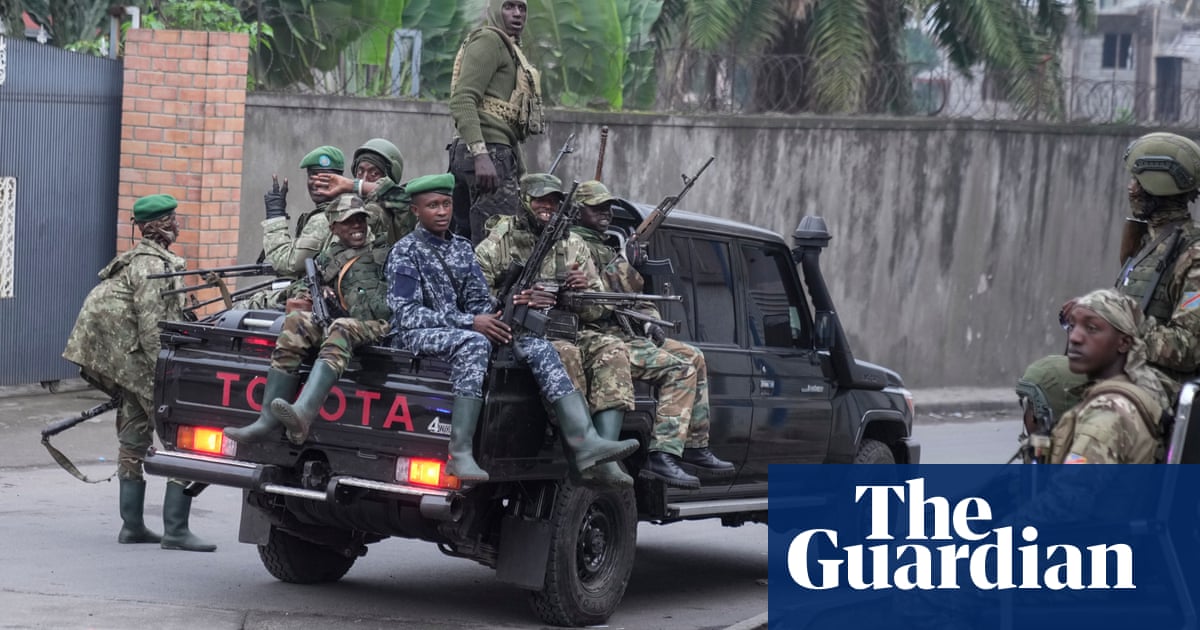The Democratic Republic of Congo’s government and the Rwandan-backed M23 group have issued a landmark joint statement saying they have agreed to halt fighting in the east of the country while they work towards a permanent truce.
The surprise announcement follows talks mediated byQatar. The two sides said they had “agreed to work towards the conclusion of a truce” in the conflict in which the M23 has seized key cities in the violence-battered region.
More than six truces and ceasefires have been agreed and then collapsed again since 2021.
UN experts and several western governments say the M23, which reignited the conflict in 2021, is supported by Rwanda. The Kigali government has denied giving military help. But a US envoy last week called on Rwanda to withdraw from DRC territory.
The latest statement, read on DRC national television and released by an M23 spokesman, said: “Both parties reaffirm their commitment to an immediate cessation of hostilities.” They said the truce would apply “throughout the duration of the talks and until their conclusion”.
Eastern Democratic Republic of Congo has been riven by conflict for three decades. The crisis has surged again in recent months with M23’s new advance into the cities ofGomaandBukavu. Thousands have been killed and displaced in the course of the advance, raising fears of a wider regional war.
DRC’s president, Félix Tshisekedi, has long refused to hold direct talks with M23 or their political alliance, accusing them of working for Rwanda.
Qatar caused a diplomatic surprise with its mediation effort. The negotiations started earlier in April. In early March, Tshisekedi and his Rwandan counterpart, Paul Kagame, held surprise meetings in Doha and later expressed their support for a ceasefire.
Qatari foreign ministry spokesman Majed Al-Ansari welcomed the joint statement by the DRC government and M23. The Gulf state urged the parties to work “towards an agreement that aligns with the aspirations of the Congolese people for peace and development”, he said.
A source with knowledge of the meetings told AFP the talks in Doha had been “constructive”.
“Both parties are now preparing for a deeper round of discussions to ... build the foundations for a comprehensive political settlement,” the source said, speaking on condition of anonymity because of the sensitivity of the talks. “Both sides are expected to return to Doha for further talks in the coming weeks.”
Qatar has signed several economic cooperation accords with Rwanda and DRC, including to invest more than $1bn in a new airport near Kigali.
Rwanda has never acknowledged a military presence in the DRC, but frequently highlights its security concerns on the border. It has demanded the eradication of ethnic Hutu militias in the DRC founded by Rwandan officials linked to the 1994 Rwanda genocide.
